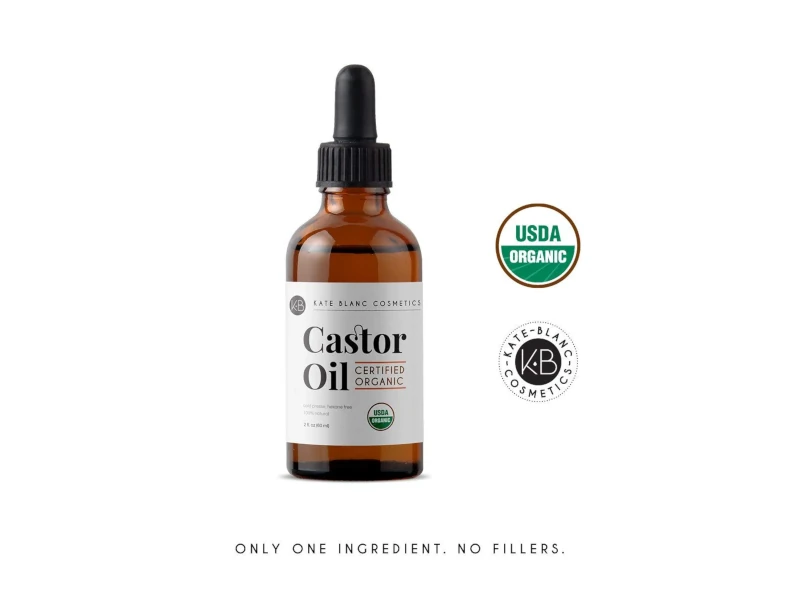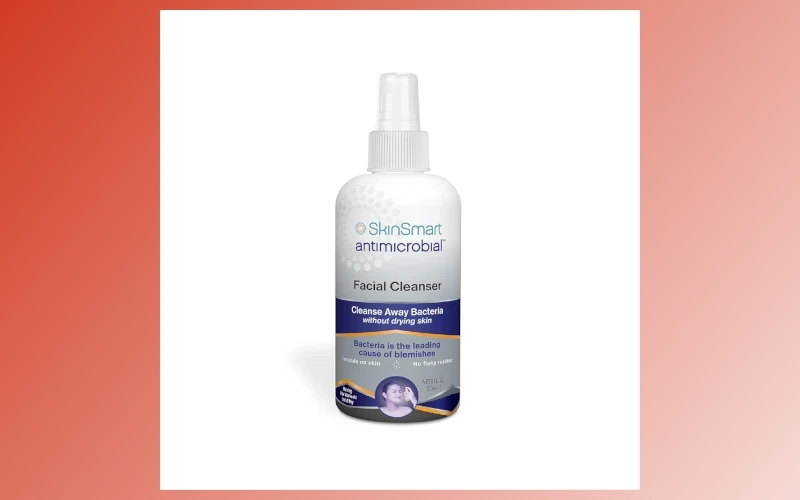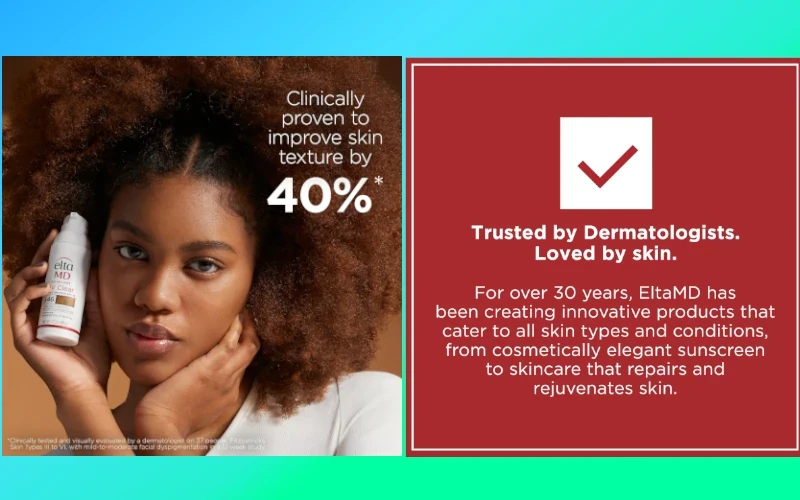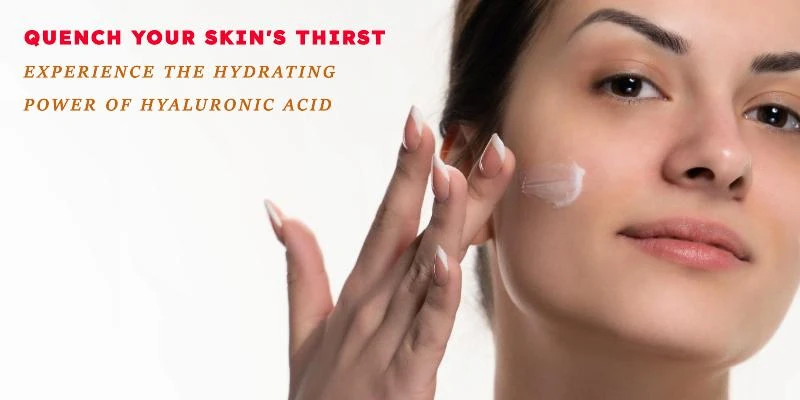Ceramides in Maintaining Skin Barrier Health: Radiant Skin
Ceramides have become a buzzword in the skincare industry, and for good reason. These naturally occurring lipids are essential in maintaining the skin barrier, which is crucial for overall skin health. Ceramides in Maintaining Skin Barrier Health is vital for healthy and glowing skin.

This skin barrier, also known as the stratum corneum, acts as the first line of defense against environmental aggressors, while also retaining moisture. In this comprehensive guide, we’ll explore the role of ceramides in skincare, their benefits, and how they contribute to maintaining a healthy skin barrier.
- What Are Ceramides?
- The Role of Ceramides in Maintaining Skin Barrier Health
- Signs of Ceramide Deficiency
- Ceramides and Aging Skin
- How to Incorporate Ceramides into Your Skincare Routine
- Best Ceramide-Infused Skincare Products
- Ceramides for Different Skin Types
- The Science Behind Ceramides in Skincare
- DIY Ceramide-Rich Skincare Recipes: Natural Solutions for a Healthy Skin Barrier
- Conclusion
What Are Ceramides?
Ceramides are a class of fatty acids known as lipids, which are naturally found in high concentrations within the cell membranes of the stratum corneum, the outermost layer of the skin. They account for about 50% of the skin’s composition, along with cholesterol and fatty acids, and are essential for maintaining the skin’s moisture barrier and preventing dryness.
Types of Ceramides
There are several types of ceramides, each playing a specific role in the skin. The most common ceramides in skin care are:
- Ceramide 1 (Ceramide EOS): Helps to improve skin hydration and restore the skin barrier.
- Ceramide 2 (Ceramide NS): Strengthens the skin barrier and enhances skin resilience.
- Ceramide 3 (Ceramide NP): Provides long-lasting moisture and improves skin texture.
- Ceramide 6-II: Exfoliates and smoothens the skin while maintaining its moisture balance.
The Role of Ceramides in Maintaining Skin Barrier Health
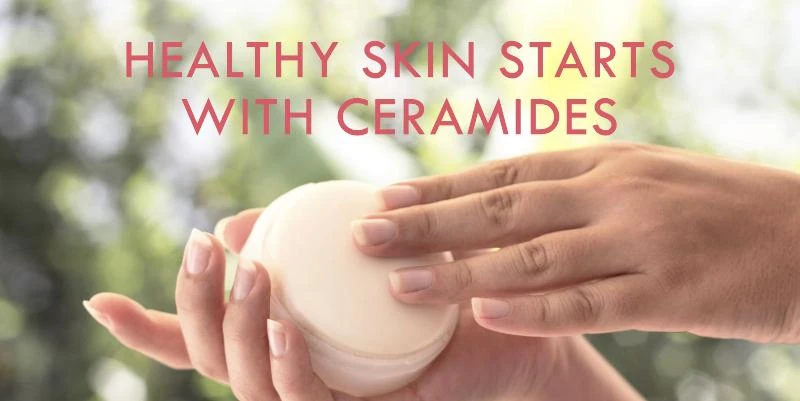
The skin barrier is a complex structure composed of skin cells (corneocytes) held together by a lipid matrix, which includes ceramides, cholesterol, and fatty acids. This barrier is vital for protecting the skin from external irritants, pollutants, and allergens while preventing water loss. Ceramides play a crucial role in maintaining the integrity and function of this barrier.
1. Preventing Moisture Loss
One of the primary functions of ceramides is to lock in moisture. By forming a protective layer on the skin’s surface, ceramides help to prevent transepidermal water loss (TEWL), which is the process by which moisture evaporates from the skin. Without adequate ceramides, the skin can become dry, dehydrated, and prone to irritation.
2. Protecting Against Environmental Stressors
Ceramides also protect the skin from environmental aggressors such as pollution, UV radiation, and harsh weather conditions. By reinforcing the skin barrier, ceramides help to minimize the damage caused by these external factors, reducing the risk of premature aging, hyperpigmentation, and skin sensitivity.
3. Supporting Skin’s Natural Repair Process
The skin is constantly exposed to damage from environmental factors, as well as from daily activities like cleansing and exfoliation. Ceramides help to support the skin’s natural repair process by restoring and replenishing the lipid matrix that holds skin cells together. This repair mechanism is essential for maintaining smooth, healthy skin.
4. Enhancing Skin Resilience
A healthy skin barrier is resilient and can better withstand external stressors. Ceramides enhance the skin’s resilience by strengthening the barrier function, making it less susceptible to irritation, inflammation, and other skin conditions such as eczema and rosacea.
Signs of Ceramide Deficiency
When the skin is deficient in ceramides, it becomes more susceptible to dryness, irritation, and sensitivity. Common signs include:
- Dry, flaky skin: A lack of ceramides leads to increased moisture loss, resulting in visibly dry and flaky skin.
- Redness and irritation: Without sufficient ceramides, the skin barrier weakens, making it more prone to irritation and redness.
- Increased sensitivity: Skin with low ceramide levels is more sensitive to environmental aggressors and skincare products, leading to discomfort and potential allergic reactions.
Ceramides and Aging Skin

As we age, the natural production of ceramides in the skin decreases, leading to a weakened skin barrier and an increase in moisture loss. This decrease contributes to the development of fine lines, wrinkles, and dryness. Incorporating ceramides into your skincare routine can help counteract these effects by replenishing the skin’s lipid content and restoring barrier function.
Anti-Aging Benefits of Ceramides
- Reduces Fine Lines and Wrinkles: By maintaining optimal hydration levels, ceramides help to plump the skin and reduce the appearance of fine lines and wrinkles.
- Improves Skin Firmness: Ceramides support the skin’s structural integrity, helping to maintain firmness and elasticity.
- Enhances Skin Texture: Regular use of ceramide-rich products can improve skin texture, making it smoother and more even-toned.
How to Incorporate Ceramides into Your Skincare Routine
To maximize the benefits of ceramides, it’s essential to incorporate them into your daily skincare routine. Here’s how to do it:
- Choose Ceramide-Infused Products: Ceramides are found in various skincare products, including cleansers, toners, serums, moisturizers, and eye creams. Look for products that list ceramides as one of the primary ingredients.
- Layer Ceramides with Other Ingredients: Ceramides work well with other hydrating and barrier-strengthening ingredients, such as hyaluronic acid, niacinamide, and glycerin. Layering these ingredients can enhance the overall effectiveness of your skincare routine.
- Use Ceramides Daily: For best results, use ceramide-infused products daily, both morning and night. Consistent use will help maintain a healthy skin barrier and keep your skin hydrated and protected.
- Focus on Moisturizing: Moisturizers with ceramides are particularly beneficial for maintaining skin barrier health. Apply a ceramide-rich moisturizer after cleansing and toning to lock in moisture and reinforce the skin barrier.
Best Ceramide-Infused Skincare Products
Here are some top-rated ceramide-infused skincare products that can help you maintain a healthy skin barrier:

- CeraVe Moisturizing Cream: This rich, non-greasy cream contains three essential ceramides (1, 3, 6-II) and hyaluronic acid to hydrate and restore the skin barrier.
- CeraVe Daily Moisturizing Lotion for Dry Skin: Smooth, lightweight texture that is absorbed quickly, leaving skin feeling smooth and hydrated, never greasy.
Ceramides for Different Skin Types
Ceramides are beneficial for all skin types, but their role may vary depending on individual skin concerns:
- Dry Skin: For those with dry skin, ceramides are essential for maintaining moisture levels and preventing further dehydration. Using a ceramide-rich moisturizer can help keep the skin soft, smooth, and hydrated.
- Oily Skin: While oily skin may produce more sebum, it can still suffer from a compromised barrier. Ceramides can help balance the skin by strengthening the barrier without adding excess oil.
- Sensitive Skin: Sensitive skin is often more prone to irritation and inflammation due to a weakened barrier. Ceramides help to calm and protect sensitive skin by reinforcing the barrier and reducing irritation.
- Aging Skin: Aging skin benefits greatly from ceramides, as they help to replenish depleted lipid levels, restore barrier function, and reduce the appearance of wrinkles.
The Science Behind Ceramides in Skincare
Ceramides have been extensively studied for their role in maintaining skin barrier function. Research has shown that ceramide levels are reduced in individuals with dry, damaged, or aging skin, leading to increased TEWL and a compromised barrier. Supplementing the skin with ceramides through skincare products can help to restore the lipid matrix, improve barrier function, and enhance overall skin health.
Clinical Studies on Ceramides
- Ceramides and Skin Hydration: Studies have demonstrated that topical application of ceramides can significantly improve skin hydration and reduce TEWL, making it an effective treatment for dehydrated skin.
- Ceramides and Barrier Function: Research has shown that ceramide-rich formulations can repair and strengthen the skin barrier, particularly in individuals with conditions like eczema and atopic dermatitis.
- Ceramides and Aging: Studies suggest that ceramide-containing products can reduce the appearance of fine lines and wrinkles by improving skin elasticity and hydration.
DIY Ceramide-Rich Skincare Recipes: Natural Solutions for a Healthy Skin Barrier
For those who prefer natural skincare solutions, several DIY recipes can help boost your skin’s ceramide levels using ingredients known for their ceramide-boosting properties. These homemade remedies are easy to make and can be a cost-effective way to incorporate ceramides into your skincare routine.

1. Avocado and Honey Moisturizing Mask
Avocado is rich in essential fatty acids and vitamins, which help to nourish and hydrate the skin. Combined with honey, which has natural humectant properties, this mask can help to lock in moisture and support the skin barrier.
Ingredients:
- 1 ripe avocado
- 1 tablespoon honey
Instructions:
- Mash the avocado in a bowl until smooth.
- Add honey and mix well.
- Apply the mixture to your face and leave it on for 15-20 minutes.
- Rinse off with warm water and pat dry.
2. Oatmeal and Yogurt Soothing Face Pack
Oatmeal is known for its soothing properties, making it an excellent choice for calming irritated skin. Yogurt contains lactic acid, which gently exfoliates while providing moisture. This face pack can help to restore the skin barrier and reduce redness.
Ingredients:
- 2 tablespoons oatmeal (ground)
- 2 tablespoons plain yogurt
Instructions:
- Mix the ground oatmeal and yogurt in a bowl until you get a smooth paste.
- Apply the mixture to your face and let it sit for 15 minutes.
- Rinse off with cool water and pat dry.
3. Ceramide-Boosting Facial Oil
Certain oils are rich in ceramides and can be used to create a nourishing facial oil. Wheat germ oil, in particular, is high in ceramides and can be combined with other beneficial oils for a hydrating and protective treatment.
Ingredients:
- 1 tablespoon wheat germ oil
- 1 tablespoon jojoba oil
- 5 drops of rosehip oil
Instructions:
- Combine all the oils in a small dropper bottle.
- Shake well to mix.
- Apply a few drops to your face after cleansing, morning and night.
4. Aloe Vera and Cucumber Hydrating Gel
Aloe vera is well-known for its hydrating and soothing properties, while cucumber provides a refreshing and cooling effect. This hydrating gel can help to restore the skin’s moisture balance and support a healthy barrier.
Ingredients:
- 2 tablespoons aloe vera gel
- 1 tablespoon cucumber juice
Instructions:
- Mix the aloe vera gel and cucumber juice in a bowl.
- Apply the gel to your face and neck.
- Leave it on for 10-15 minutes before rinsing off with water.
Conclusion
Ceramides are a fundamental component of healthy, resilient skin. Their ability to maintain the skin barrier, lock in moisture, and protect against environmental stressors makes them a crucial ingredient in any skincare routine. Whether you’re dealing with dry skin, sensitivity, or signs of aging, incorporating ceramides into your daily regimen can help you achieve smoother, more hydrated, and youthful-looking skin.
As the skincare industry continues to evolve, the importance of ceramides in maintaining skin barrier health remains paramount. By understanding their role and choosing the right ceramide-infused products, you can ensure your skin stays protected, nourished, and radiant.
Trust in your purchase:
Every product featured on our site has been carefully researched and selected based on quality, customer ratings, and positive reviews to ensure you receive excellent value for your money.
Please note:
This post contains affiliate links. If you make a purchase through these links, we may earn a small commission at no additional cost to you. This helps support our site and allows us to continue bringing you valuable content. Thank you!
Thank you for your precious time spent with AestheticThrive.
Source:
- What Do Ceramides Do for Your Skin?
Ceramides for Skin: What They Are and Benefits (clevelandclinic.org) - What Are Ceramides?
What Are Ceramides for the Skin? Types and Benefits (health.com) - Ceramides for skin: Benefits, side effects, and more
What are the benefits of ceramides for the skin? (medicalnewstoday.com) - Understanding the Role of Ceramides in Skin Barrier Health
Understanding the Role of Ceramides in Skin Barrier Health – Inspire Culture


